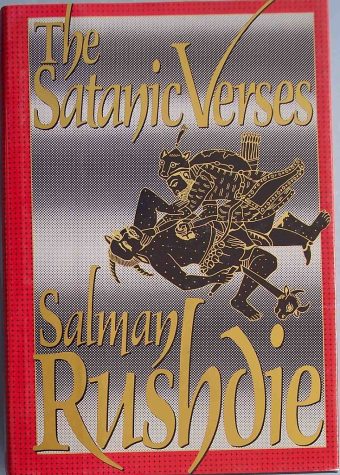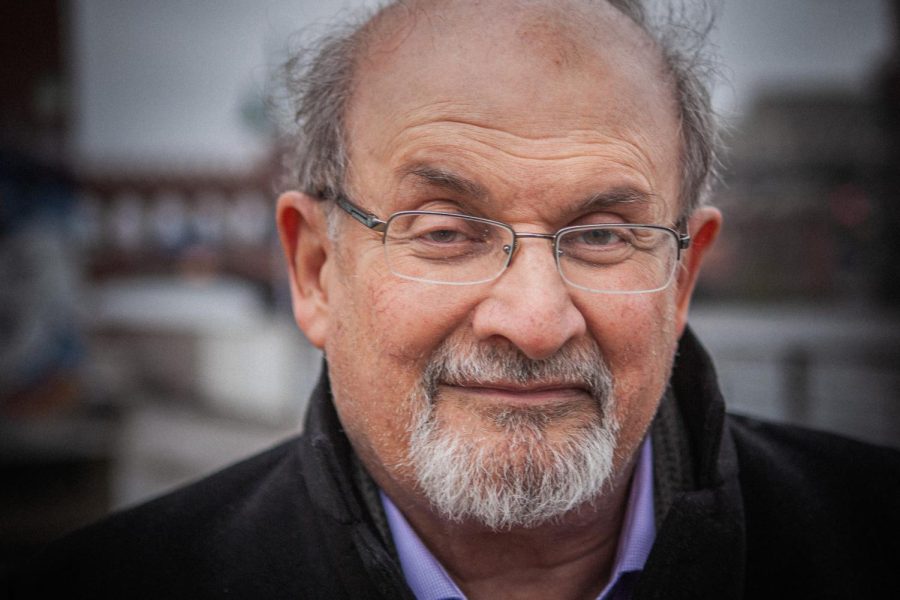Salman Rushdie Stabbed in New York
September 22, 2022
On August 12, 2022, Hadi Matar, a 24-year-old man, stabbed novelist Salman Rushdie ten times in Chautauqua, New York as Rushdie was about to give a speech at the Chautauqua Institute. Matar, a Shia Muslim extremist, committed the attack in response to Rushdie’s novel, The Satanic Verses, which Matar deemed anti-Islamic. The stabbing has sparked much debate regarding the extent to which freedom of speech is protected in the United States. But, in order to understand the implications of this attack, one must first understand The Satanic Verses’ history of controversy.
Sir Ahmed Salman Rushdie was born into a Muslim family in India in 1947. Although raised Muslim, he identifies as an Atheist. His skepticism of Islam culminated into his 1988 novel, The Satanic Verses. The title is in reference to a well-known disputed incident in which the Islamic Prophet Muhammed was tempted by Satan. Muhammed did not realize that the source of temptation was Satan, and he reportedly told his followers to worship three Arabian goddesses (Al-Lāt, al-‘Uzzā, and Manāt) rather than Allah, the Muslims’ sole God. To this day, many Muslims and Islamic leaders deny that this event ever even occurred. In the novel, the character of Gibreel has a series of dreams, one of which details the character Mahmoud (based on Muhammad) being tempted by the devil to worship multiple Gods.
In addition to the novel’s dream sequence, many Muslims have also found Muhammad’s stand-in name, Mahmoud, to be offensive as Mahmoud was used as a derogatory term for the prophet during the Crusades. Some are also offended by the character Saladin, who is the devil in the book. In real life, Saladin was a great Muslim hero during the Crusades. People also did not like Rushdie calling the biblical figure Abraham a bastard.

Many Muslims protested in both the UK and India after the book’s initial publication in the UK. During the same year, the book was banned in India, Bangladesh, Sudan, South Africa, and Sri Lanka. Viking Penguin, the book’s publishing company, was overwhelmed with angry phone calls and letters to its office. In Bolton, England, 7,000 Muslims marched and burned the book in an effort to attract international attention. The book was published in the US in 1989 and protests, bannings, and book burnings resumed. Over seventy reports were issued to the FBI in response to bomb threats made to US bookstores. Many of these bomb threats came to fruition, most notably in Berkeley, California, and New York City, New York. The UK was faced with similar threats and bombings.
However, it was not until February 14, 1989, that Rushdie’s life was put into apparent jeopardy. The Iranian Ayatollah Ruhollah Khomeini issued a fatwā or a ruling based on Sharia law, which ordered Muslims to hunt out and kill Rushdie. The fatwā caused controversy among Western Muslim communities who had to grapple with the discordant beliefs of their religion and of their country. Many believed that killing Rushdie went against freedom of speech. Following the fatwā, Rushdie expressed his apologies to all those whom his book had offended. Khomeini promptly rejected his response.

In response to the fatwā, the Union of Islamic Students’ Associations in Europe declared that they would try to carry out the killing. Contrastly, many have cited the fact that Sharia law does not allow a death warrant without a trial to show their support for Rushdie. The Islamic Jurisprudence Academy in Mecca believes that Rushdie should be put on trial and then given the opportunity to repent for his crimes, rather than be killed.
Despite all the uproar, no threats aimed at Rushdie had ever materialized until this year. Rushdie was immediately hospitalized and his stabber Hadi Matar was arrested for attempted murder. Iran claims that it had no prior knowledge regarding the attack, although Matar had reportedly praised the Ayatollah.
Following the attack, the Biden Administration is considering imposing sanctions on Iranian entities who supported the fatwā against Rushdie. Both conservative and liberal politicians and Americans alike have come out to support Rushdie. While Americans might disagree on a lot, it seems the defense of the US constitutional right of freedom of speech will always traverse party lines.


















































































































































